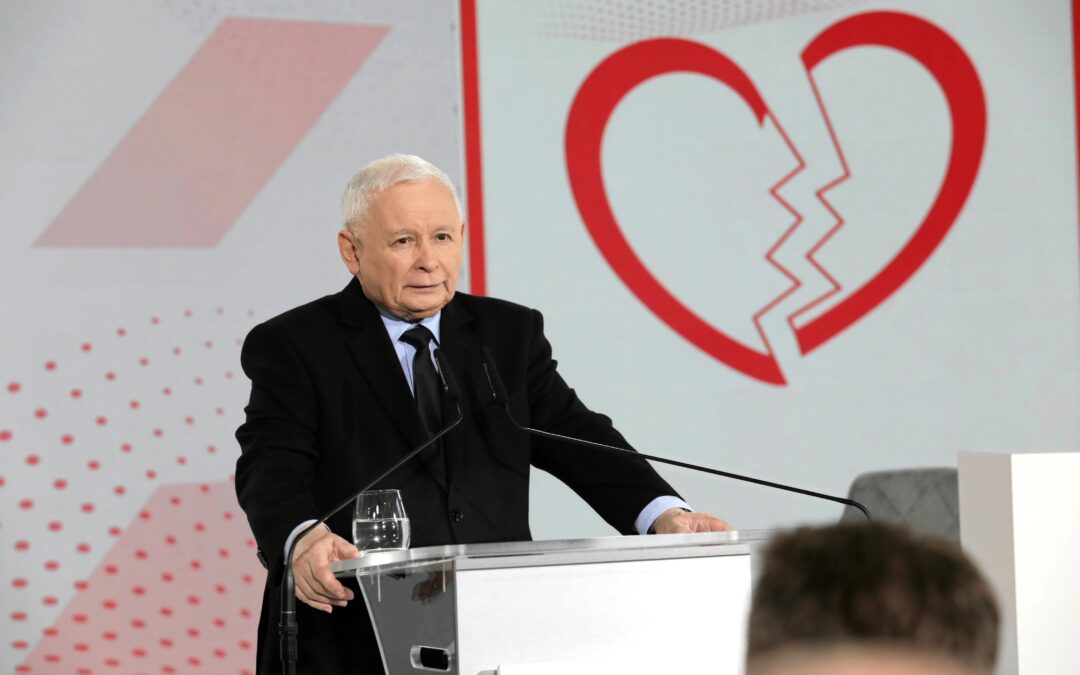The Polish government says it is “not planning” to implement any changes in response to this week’s rulings by the Court of Justice of the European Union (CJEU), which found its disciplinary chamber for Polish judges to be in violation of European law and ordered it to be immediately suspended.
Meanwhile, the head of the Polish Supreme Court – in which the disciplinary chamber is based – has said that she will allow it to continue functioning. She was appointed last year in controversial circumstances after the Supreme Court had previously ruled that the disciplinary chamber is illegitimate.
The developments further intensify the dispute between Warsaw and Brussels over the rule of law, which was also fuelled this week by a ruling from Poland’s Constitutional Tribunal (TK) – also seen as being under government influence – declaring that certain CJEU orders could effectively be ignored.
“We are not planning any modifications in connection with the [CJEU] ruling,” said Piotr Müller today, quoted by Dziennik Gazeta Prawna. “Poland is not breaking any law in this respect – this was ruled by the Polish Constitutional Tribunal – so there are no grounds for any modifications.”
Earlier in the day, Małgorzata Manowska, the chief justice of the Supreme Court, had declared she “formly believes” that the disciplinary chamber is “fully independent”. She therefore repealed an order by her predecessor that implemented a CJEU ruling from last year requiring the disciplinary chamber to be partially suspended.
Manowska’s position stands in contrast to both a Supreme Court ruling from 2019 – when it found that the chamber is “not a court within the meaning of EU and national law” – and a CJEU ruling from this week, which found that the chamber “does not provide all the guarantees of impartiality and independence”.
However, Manowska said today that “EU law does not cover the field of the organisation of justice, as it is the member states that have competence in this matter”. “The Polish legislature has the exclusive competence to define the institutional framework for the functioning of the judiciary,” she added.
“As a government, we share this position,” said Müller today, commenting on Manowska’s decision. “We have repeatedly said that it is not the competence of any EU body to decide on issues related to the organisation of the judiciary [in a member state].”
He added that this principle is “well-established [in] the jurisprudence of the Constitutional Tribunal both in Poland and in other countries”. This week the TK ruled that interim measures regarding the Polish judiciary issued by the CJEU are “inconsistent with the constitution”.
Zbigniew Ziobro, Poland’s justice minister, went even further, declaring that this week’s CJEU rulings were a “political judgment ordered by the European Commission” and exhibit “colonial thinking” by creating a “segregation of better and worse countries” with the former allowed to do things that the latter are not, reports TVN24.
In response to Manowska's statement, the College of the Supreme Court has urged her to organise a meeting to immediately solve this issue. "In essence, it incites breaking the laws in force in Poland and exposes Poland to financial consequences", says judge Włodzimierz Wróbel. https://t.co/FSdQ70JS19
— Rule of Law in Poland (@RULEOFLAWpl) July 16, 2021
Asked whether he was afraid that the European Commission, which has brought the cases against Poland to the CJEU, would seek financial penalties against Warsaw for failing to comply with the verdicts, Müller claimed that any such action would be “inconsistent with the EU treaties”.
However, Krystian Markiewicz, president of the Iustitia judges’ association, which has opposed the government’s judicial policies, told OKO.press that, if Poland fails to implement CJEU rulings, it could lose billions of euros of EU funds and there could also be criminal charges against the officials responsible.
In a statement yesterday, Věra Jourová, a European Commission vice-president, said that the CJEU’s ruling on Poland’s disciplinary system for judges “must be fully respected and implemented”.
R. Daniel Kelemen, professor of political science and law at Rutgers University, remarked on today’s developments that, while Poland “remains an EU member state”, it has effectively “left the EU legal order”, which is “based on rule of law” and “Poland is no longer a part of that”.
This state of denial is worrying. The two recent #ECJ rulings were very clear and the @EU_Commission has to act without delay on the ‘disciplinary chamber’. Absolutely no need to wait for the other case to resume. Let’s stand up for our 🇪🇺 Rule of Law and for the Polish people. https://t.co/0jAqH9eB3T
— Thijs Reuten 🇪🇺🌹 (@thijsreuten) July 16, 2021
Main image credit: Adam Guz / KPRM (under public domain)

Daniel Tilles is editor-in-chief of Notes from Poland. He has written on Polish affairs for a wide range of publications, including Foreign Policy, POLITICO Europe, EUobserver and Dziennik Gazeta Prawna.



















